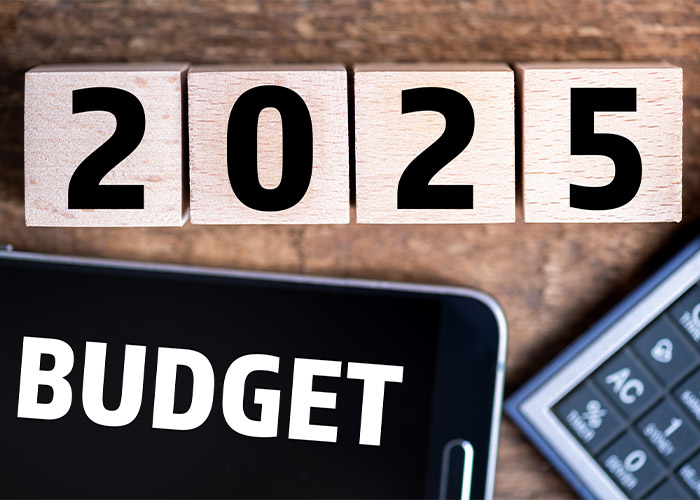The news we’ve all been waiting for is here. On Wednesday 26th November, Rachel Reeves, Chancellor of the Exchequer, delivered her 2025 Budget. Learn more about the key changes to your finances below.
Minimum Wage Increase Confirmed
Reeves has confirmed an increase in minimum wage, due to come into effect from April 2026.
- Aged 21 & Over: £12.71 per hour (up from £12.21).
- Aged 18-20: £10.85 per hour (up from £10).
- Aged 16-17: £8 per hour (up from £7.55).
- Apprenticeship Rate: For those aged under 19 or over 19 in the first year of their apprenticeship, minimum wage will increase to £8 per hour (from £7.55).
Income Tax Thresholds To Be Frozen
Income tax thresholds are set to be frozen for another three years, until April 2031. This means more working people could pay higher amounts of income tax as their pay rises.
Two-Child Benefit Cap Will Be Scrapped
The two-child benefit cap “within Universal Credit” will be removed from April 2026.
What is the Two-Child Benefit Cap?
The two-child benefit cap was introduced by the previous Conservative Government, which meant parents with three or more children could not claim Universal Credit or tax credits for more than two children if they were born after April 2017.
But now, if you have more than two children, you will be able to claim universal credit or tax credits for all of your children, starting from April 2026.
£150 Could Be Cut From the Average Household Energy Bill
From April 2026, the ECO (Energy Company Obligation) energy scheme will be scrapped, which could shave £150 off the average household energy bill.
New Limit on Tax-Free Pension Contributions Through Salary-Sacrifice Schemes
From April 2029, only £2,000 of pension contributions made through salary-sacrifice pension schemes will be free of National Insurance and income tax, meaning any extra contributions could cost you more in taxes.
What is a Salary-Sacrifice Pension Scheme?
A salary-sacrifice pension scheme allows employees to agree an amount with their employers that will be taken out of their pay and moved into their pension, before it’s hit by National Insurance Contributions (NICs) and income tax.
This lowers the employee’s gross salary, which reduces both income tax and National Insurance Contributions (NICs) for both the employee and the employer.
Most Benefits & State Pensions Will Rise
Most benefits will rise by 3.8% in April 2026, in line with rising prices. This includes:
- Personal Independence Payment (PIP)
- Attendance Allowance
- Disability Living Allowance
- Carer’s Allowance
The state pension will also rise from April 2026, but by 4.8% instead, in line with average wages:
- The New Flat-Rate State Pension: For those who reached state pension age after April 2016, it will increase to £241.30 per week (equivalent to £12,547.60 per year).
- The Old Basic State Pension: For those who reached state pension age before April 2016, it will increase to £184.90 per week (equivalent to £9,614.80 per year).
- You need 35 years of qualifying contributions to get a full state pension.
Electric Vehicle Users Will Pay a New Mileage Tax
A new mileage tax has been introduced for electric vehicles from April 2028:
- £0.03 per mile for battery electric cars
- £0.015 per mile for plug-in hybrid cars
- The rate per mile will increase yearly in line with inflation
Fuel Duty Will Freeze
Fuel duty will be frozen until September 2026, extending the 5p cut.
The Saving Limit on a Cash ISA Will Be Reduced
The amount of money that can be saved tax-free per year in a cash ISA (Individual Savings Account) is due to be reduced from £20,000 to £12,000 for those aged under 65.
Additionally, the Help to Save scheme will be extended from 2028. This scheme helps those on low incomes and Universal Credit to put money aside.
Student Loan Repayment Threshold Will Freeze
The repayment threshold for Plan 2 student loans will go up from £28,470 to £29,385 per year in April 2026, and will then freeze at this level until April 2030.
Public Transport Fares Continue to Freeze
The freeze on single bus ticket prices (capped at £3) has been extended until March 2027. Regulated train fares have also been frozen, which is the first time they have been left unchanged in 30 years.
These train fares include:
- Season tickets covering most commuter routes.
- Some off-peak return tickets on long-distance journeys.
- Flexible tickets for travel in and around major cities.
NHS Prescriptions Continue to Freeze
The freeze on a single NHS prescription in England (£9.90) has been extended for the second year in a row.
Sugary Drinks Could Be More Expensive
The current sugar tax on fizzy drinks in the UK will be extended to milk-based products in 2028. This includes pre-packaged milkshakes and coffees that are high in sugar.
This could push up prices, make the drinks smaller, or result in a change to ingredients.
Struggling with the Cost of Living?
If you’re struggling to make ends meet, you’re not alone. Contact Angel Advance to get free*, confidential debt advice from our friendly debt advisors today. Our team is available to chat over the phone, via email, through WhatsApp, or in a webchat.
If you’re short on time, why not try our free online debt advice tool? It only takes 10-15 minutes to complete, and you can fill it out at any time – day or night. Simply tell us more about your finances and our tool will create a monthly budget for you, give you debt advice specific to your situation, and show you which debt solutions you’re eligible for on screen, straightaway.
*Our advice is free, but if you sign up for a debt solution, a fee will apply for some solutions.


